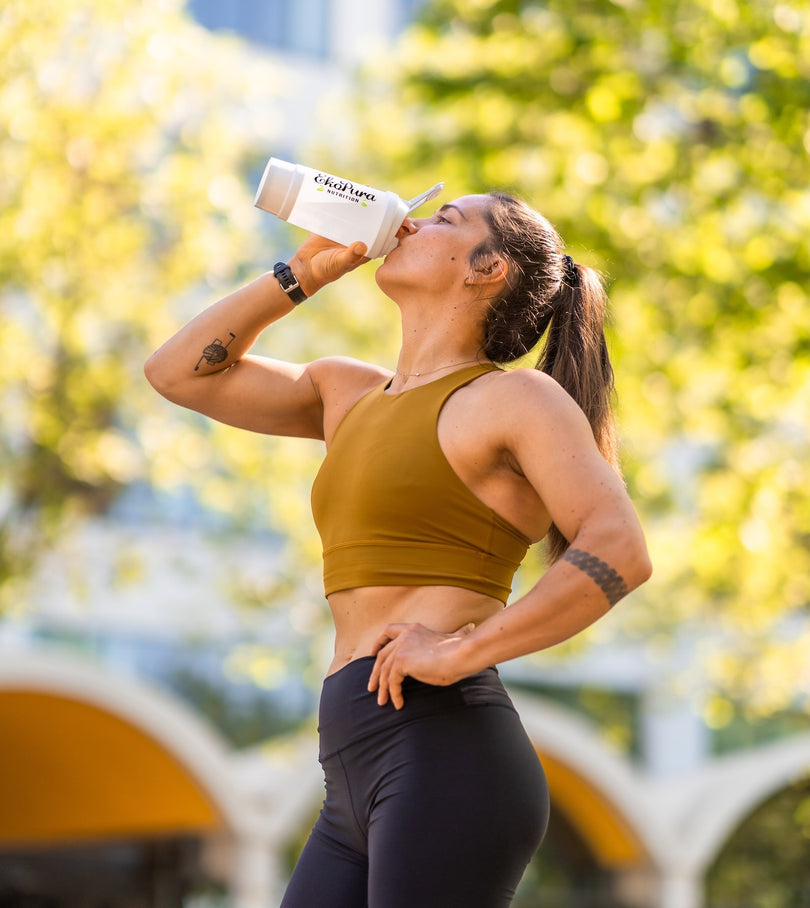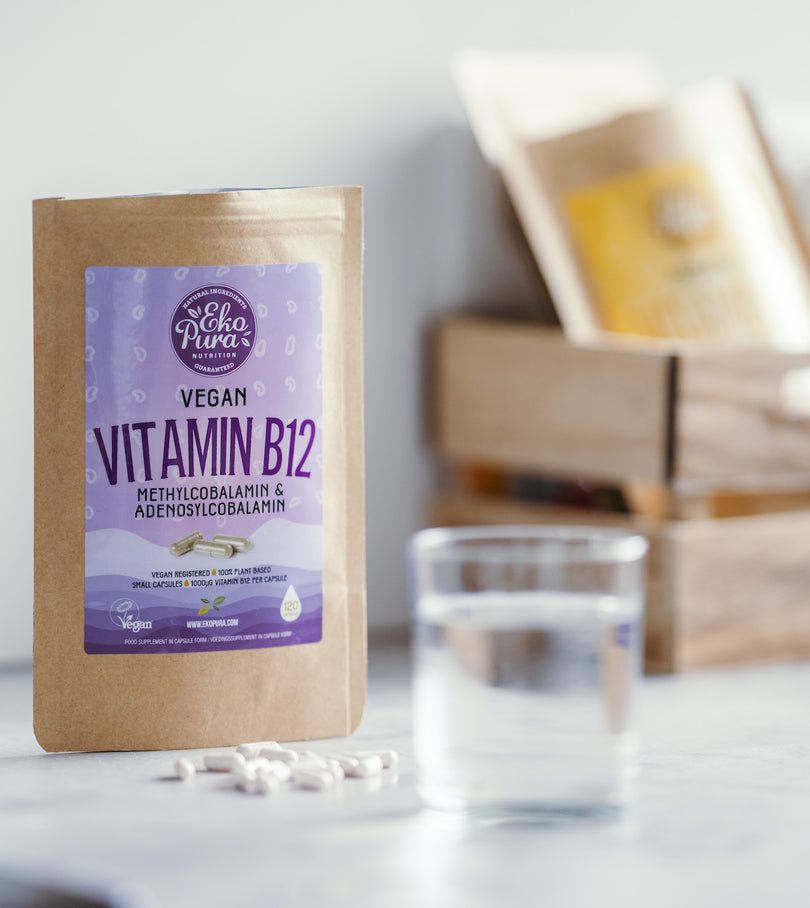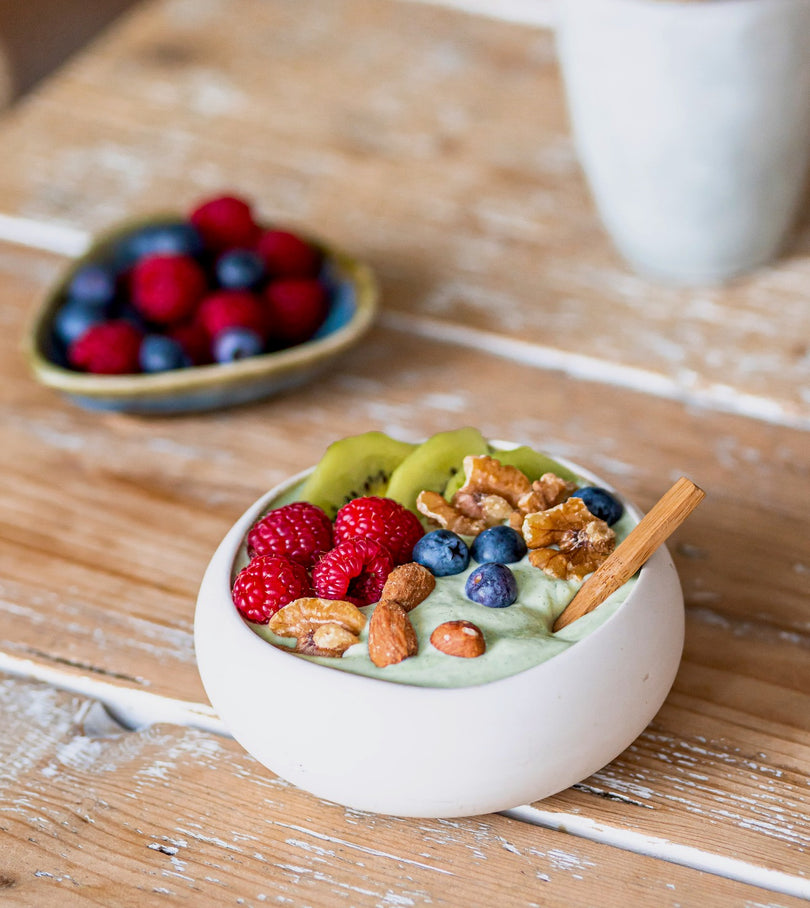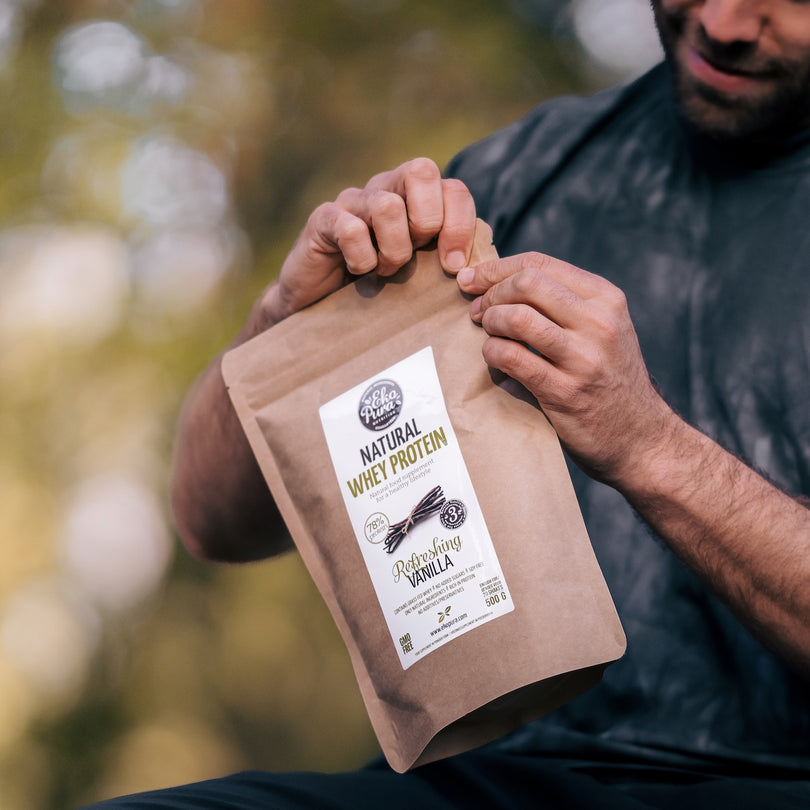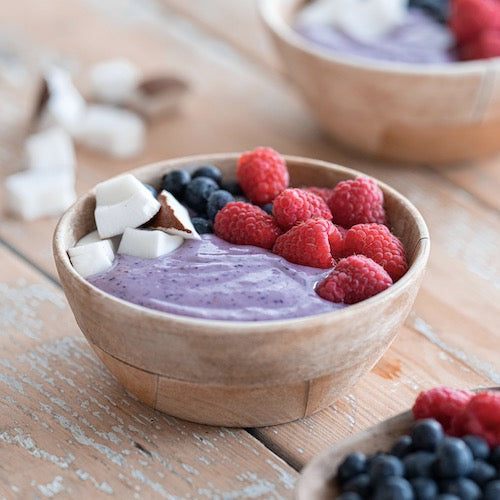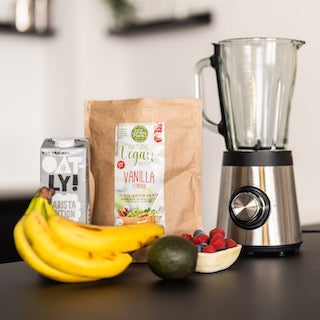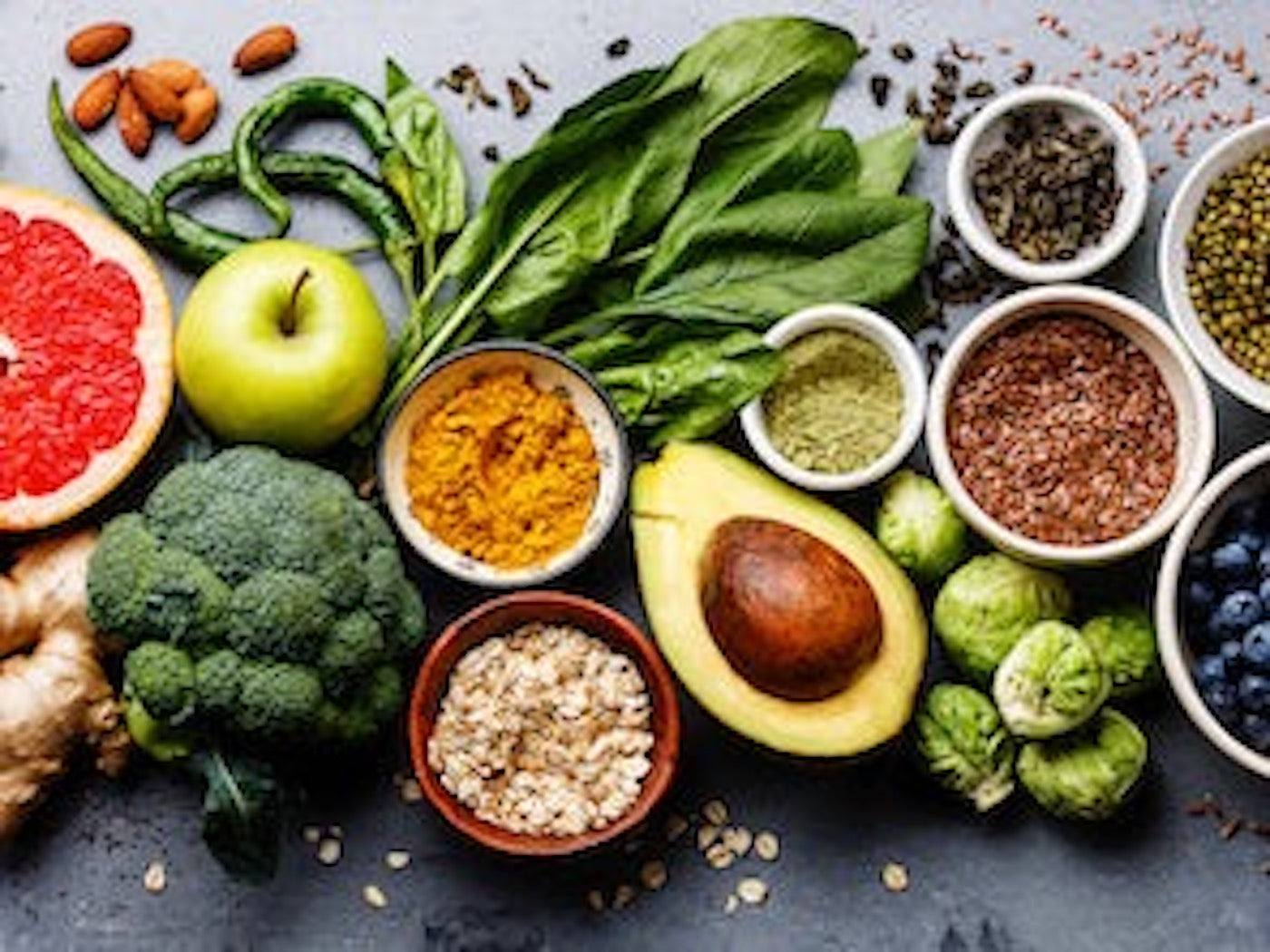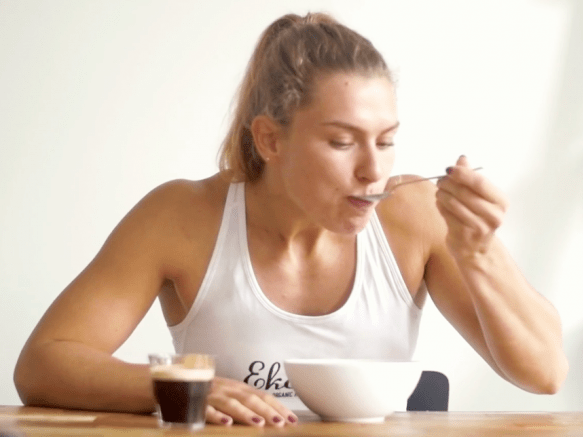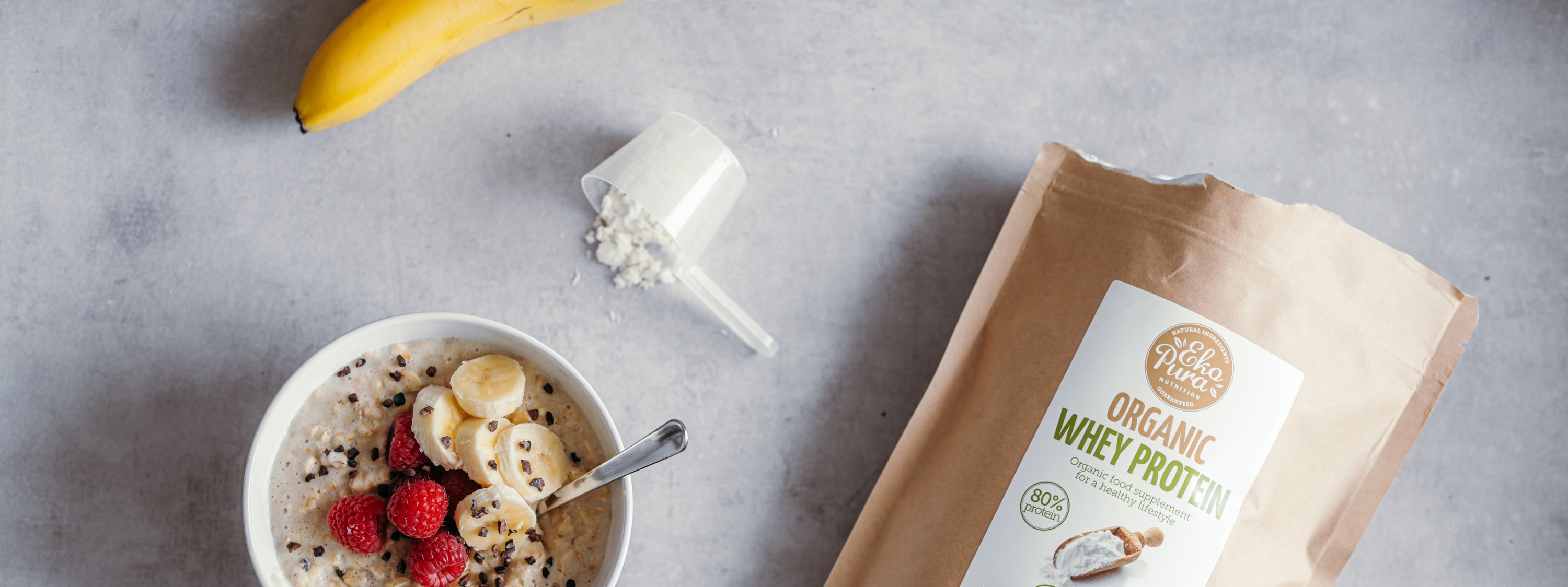We all know the importance of getting enough protein daily. Especially when you do strength sports. Proteins are our body's building blocks. Your body uses protein for almost all crucial physiological processes.
Some examples are:
- Growth, maintenance and repair of cells (muscles, skin, skeleton, hair, teeth) - Metabolism & cell transport through the bloodstream
- Production of antibodies (immune system)
- Organ functions
- Production of enzymes & hormones
How much protein per day you should eat is different for each person. The exact amount of protein your body needs daily depends on age, health, weight and physical activity, among other things. However, it is possible to make a good estimate of how much protein you need based on the average requirement.
Read more about this in our blog: How much protein do you need per day?
To get you started on your daily protein needs, we have selected seven protein-rich vegetables below that you can add to your weekly groceries. They are also easy to mealprep and have a long shelf life. Read along.
High Protein Vegetables
Asparagus
With one gram of protein in each reasonably sized asparagus, this is the obvious winner. Asparagus is also high in vitamin K, vitamin C, vitamin B1, B2, vitamin E and folic acid (vitamin B11). This makes asparagus healthy for the whole body. This green rascal is steamed or grilled at its best.
Edamame
These green beans are incredibly healthy! Mainly because they are packed with protein. They also contain fiber, iron and calcium. So not only are they super yummy, but also an ideal vegetable and protein source for vegetarians and vegans. Did you know that soybeans are one of the few plant ingredients that contain all the essential amino acids?
Broccoli
Scoop it up, because there are about 3 grams of protein in every 100 grams of broccoli! Broccoli also contains many other good things, including vitamins A, B, C, E and K. Minerals are also well represented: calcium, potassium, phosphorus, beta-carotene, zinc, iron and copper. But vitamins A, C and E are especially important; they are the strongest antioxidants among vitamins.
Cauliflower
You need 24 florets to get the same amount of protein as in one egg. A fresh cauliflower contains 24 kcal per 100 grams. Cauliflower consists mostly of water and is high in vitamin C. In addition, like kale, it has the advantage of fighting many diseases. There is also a relatively high amount of vitamin K, B6 and B11 (folic acid) in cauliflower. Tip! Want to watch your carbs a bit? You can use cauliflower to make your own pizza crust, for example, or grate it and substitute it for rice.
Corn
Corn may not be the most protein-rich vegetable, but it is one that you can use well in dishes. Think chili con (or sin) carne to a simple salad. A fresh corn cob consists of 15% water. It consists per 100 grams of about 78% carbohydrates ( in the form of starch) 11% fat and 13% protein. What makes corn healthy is that it contains a lot of dietary fiber, about 3 grams; this is 12% of what you need approximately per day.
Sprouts
Not everyone is a fan of Brussels sprouts, but these green bombs do contain 4 grams of protein per serving (about four tablespoons). In addition, Brussels sprouts contain more vitamin C than oranges! There are 150 milligrams of vitamin C in 100 grams of raw Brussels sprouts; 100 grams of oranges contain 51 milligrams of vitamin C. They are also rich in B vitamins, folate, magnesium, potassium and fiber. Brussels sprouts can be boiled, wok or grilled.
Watercress
100 grams of watercress gives you 4 grams of protein and an unbelievable amount of vitamins. Watercress is rich in antioxidants and low in calories. If you eat about 80 grams of it. You will already have gotten almost half of the recommended daily allowance of vitamin A and 50 mg of vitamin C. It also contains significant amounts of Beta-carotene, several B vitamins, vitamin E, iron, potassium, zinc and calcium.
A variety of health benefits are attributed to watercress. It is said to combat aging and provide strong nails, bones and beautiful hair and skin, it is said to purify the blood, strengthens the immune system and helps prevent disease. So off to the greengrocer!
Which of the above vegetables is your favorite?




